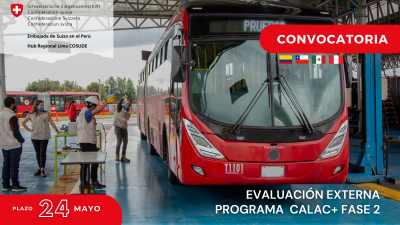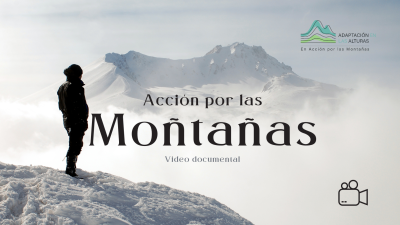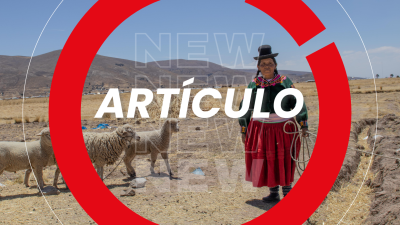The training for entrepreneurs and future facilitators was part of a series of activities in the framework of the project “Recovery of Resources and Safe Recycling (RRR), promoted by the Swiss Agency for Development and Cooperation (SDC). A total of 20 representatives from four municipalities, four companies and two universities took part in the training programme.
One of the objectives the project addresses is to increase the safe and productive re-use of water, nutrients, organic material and energy from domestic and agro industrial waste, in order to improve food security and the means of self-sufficiency.
Using a methodology which contemplated not only theory but also dynamics of group work and field visits, the participants were able to see and share experiences, define the characteristics of their market, understand the legal and institutional framework of their RRR models; draft the flow charts of their initiative, including the inputs they need, the technology to be used and the product characteristics. Again, the dynamic used for designing the RRR business models, drafting a sanitation plan, identifying financing mechanisms for implementing their RRR project were all key. Finally, the participants developed a first draft of the implementation plan and they expanded their contact network, which in future will help them develop their RRR initiative successfully.
The participants from municipal districts from Lima, Water and Sanitation EPS; solid waste EPS; Commercial Solid Waste Companies, and suppliers of treatment technologies and other private companies were able to learn to design technically viable and economically feasible re-use projects, working with their own RRR business model, included in the following categories:
- Re-use of waste water for irrigation (four models: Lima Municipality, Mi Perú Municipality, Emapa Chancay, UPC University)
- Re-use of waste cooking-oil to make biodiesel (three models: Golden Consulting, Unique, PUCP)
- Re-use of municipal organic waste for making compost (three models: Lima compost, Los Olivos Municipality, Ate Municipality)
24 April. The workshop was opened by Cesarina Quintana, Senior National Office of Swiss Cooperation (SDC), who spoke of Swiss Cooperation’s commitment – through the project – to collaborate with the Agenda 2030, in particular with the SDGs 6 and 12, framed in the context of the new law on solid waste, which stresses eco efficiency, and the development and promotion of the circular economy. Afterwards, Leonellha Barreto (seecon) and Maricé Salvador, local coordinator (GrupoGEA), highlighted the importance of the RRR entrepreneurial businesses, through the reappraisal of waste and its transformation into products of commercial value.
In the afternoon, the participants separated into three groups, one for each of the categories of the business model. They worked for the next two-and-a-half days in different groups, so the presentations and the groups work in each session was adapted to the specific aspects of each business model. The subjects of the sessions addressed were following: i) the input and requisites availability, ii) product characteristics, iii) market characteristics, iv) processes and technologies involved, v) institutional and legal framework, and vi) they developed a Business Model Canvas for RRR.
 |
|
From left to right: 1. Compost Plant (La Molina University); 2. Biodiesel Laboratory,
3. WWTP at La Molina University |
25 April. In accordance with the workshop schedule, the groups went on a field visit differentiated per group: i) Water Group: EDAR in La Molina and the Jardines de la Paz cemetery, ii) Grupo Biodiesel: the biodiesel laboratory and the pilot plant in La Molina, and iii) the Compost Group: the compost plant in La Molina.
 |
|
From left to right: 1. Compost Group, 2. Biodiesel Group, and 3. Wastewater Group |
27 and 28 April. On the penultimate day and in the morning of the 28, all the participants met in a plenary to work on the following questions: i) planning the Sanitation Security for their RRR initiative, ii) financial management, iii) action plan development, and iv) the preparation of their final presentations.
28 April. In the afternoon the workshop was brought to a close. Over 50 people attended, including members of the consortium, representatives of the RRR public-private working party and representatives of financial mechanisms in Lima. The closing ceremony was a good opportunity for presenting the business ideas developed by the participants, which received interesting comments from the public.
Finally, representatives of three financial
mechanisms in Lima presented their programmes and showed their interest in the RRR business ideas presented by the workshop participants, which demonstrated how to make use not only of waste as such but how to create a financially viable and secure line of business.
We share the workshop images:
 |
| View Image Gallery |
In its second phase, the project is implemented by the RRR Consortium composed of the following group: GEA, IPES (Instituto de Promoción del Desarrollo Sostenible), the La Molina University; Care Perú; the Swiss Water Think Tank Eawag; SEECON GMBH and Swiss TPH; and receives technical and financial support from the Global Programme Water Initiatives of the Swiss Agency for Development and Cooperation (SDC). For further information:
Brochure Project “Recovery and Safe Re-use of Resources (RRR)”








